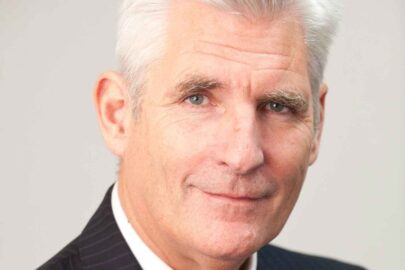There are certain businesses within financial services who are very adept at, not just engaging with their local community, but actually making a difference to it. Indeed, when you look at your own Corporate Social Responsibility (CSR) programme, that may be one way in which you might judge it to be a success.
Many lenders in particular talk a good game in this area but what are they doing and what tangible difference is it making to a community? Traditionally, it has been the building society sector that has led the way in this area – you might say it’s because the vast majority of them have those long-term local links and have utilised their place within those communities in order to leverage this.
But, there’s a difference between being within a region or town or geographical area, and then ensuring you make a positive difference there. I would also suggest it’s probably a bit more difficult for those who are not so embedded in a region, and perhaps have a national focus when it comes to sales and products.
But, the very true point of this is, that we all have an office based somewhere and, even if that is on a business park far outside a town or city, there’s still an opportunity for you as firm owners (and your staff) to decide what sort of CSR programme you want to put in place, how might that work, and what you ultimately want to achieve from it?
I suppose we are slightly fortunate – and different to some of our peer group – in the fact that we are Fleet Mortgages, we are headquartered in Fleet, and we take the vast majority of our staff from the local area. So, when we ask ourselves and our employees where we want to target our CSR resources, we tend to have a lot of feedback and ideas on where we might be best targeting those.
For instance, earlier this year, when we were ‘between product ranges’ – so to speak – we were able to put far more emphasis and resource into the local projects our staff wanted to support. Now, that’s not to say that prior to this point we weren’t already committed to various projects but this ‘downtime’ gave us a chance to sharpen our minds and practices in this area.
Our staff approached the local Volunteer Centre for instance, and outlined our current situation, the opportunity this presented and the availability of staff to be able to help out, perhaps more than they had done so previously.
Now, let’s also be honest here, part of our reasoning was not just around the fact that local employees were keen to help their local projects, but we also wanted staff to feel valued and engaged with something more than the business.
What was interesting – and I think all financial services firms should be aware of this – was the response we got back from the Hart Volunteer Centre. We perhaps were expecting them to welcome us with open arms, to immediately put our teams of volunteers to work, and that we would be somehow lauded as titans of our local community for even getting in touch.
That wasn’t the case, and it was soon pointed out that there is also a pressure on volunteer groups to accommodate corporate teams, and that sometimes this doesn’t necessarily work out best for the Centre. It was pointed out that some firms are merely seeking to tick off CSR, and are (quite frankly) slightly fly by night in their attitude when they believe this has been achieved.
We – and I suspect you – will not want to be like that however, and it was instructive to all of us to hear the many ways we might be able to help, which don’t all involve staff putting on dungarees and getting their paint brushes out. Perhaps it’s about providing career advice in local schools or working with local homeless organisations? Perhaps it’s collecting for the local food bank and then helping work there? Or it’s looking at local environmental projects which do require significant manpower and perhaps organisational skills to make them happen?
There are many ways you can help in your local community but ensure you’re acting on their needs not your own. In that sense, consult your staff about what they’d like to do, the projects they might be interested in, but then visit the local Volunteer Centre to see what they actually need. You may find these are very different things and by asking those at the front line, you’ll be much more able to make a real difference to the things that really matter.
Bob Young is chief executive officer of Fleet Mortgages
